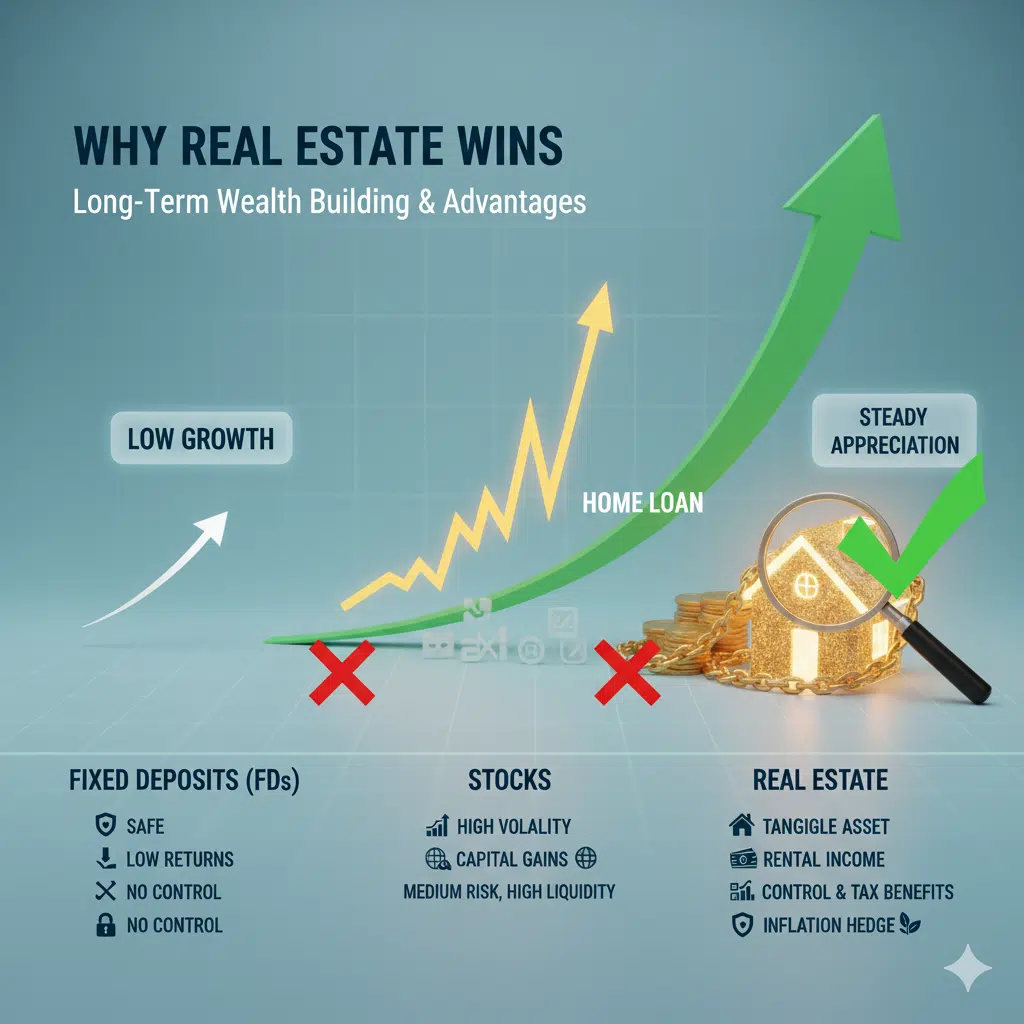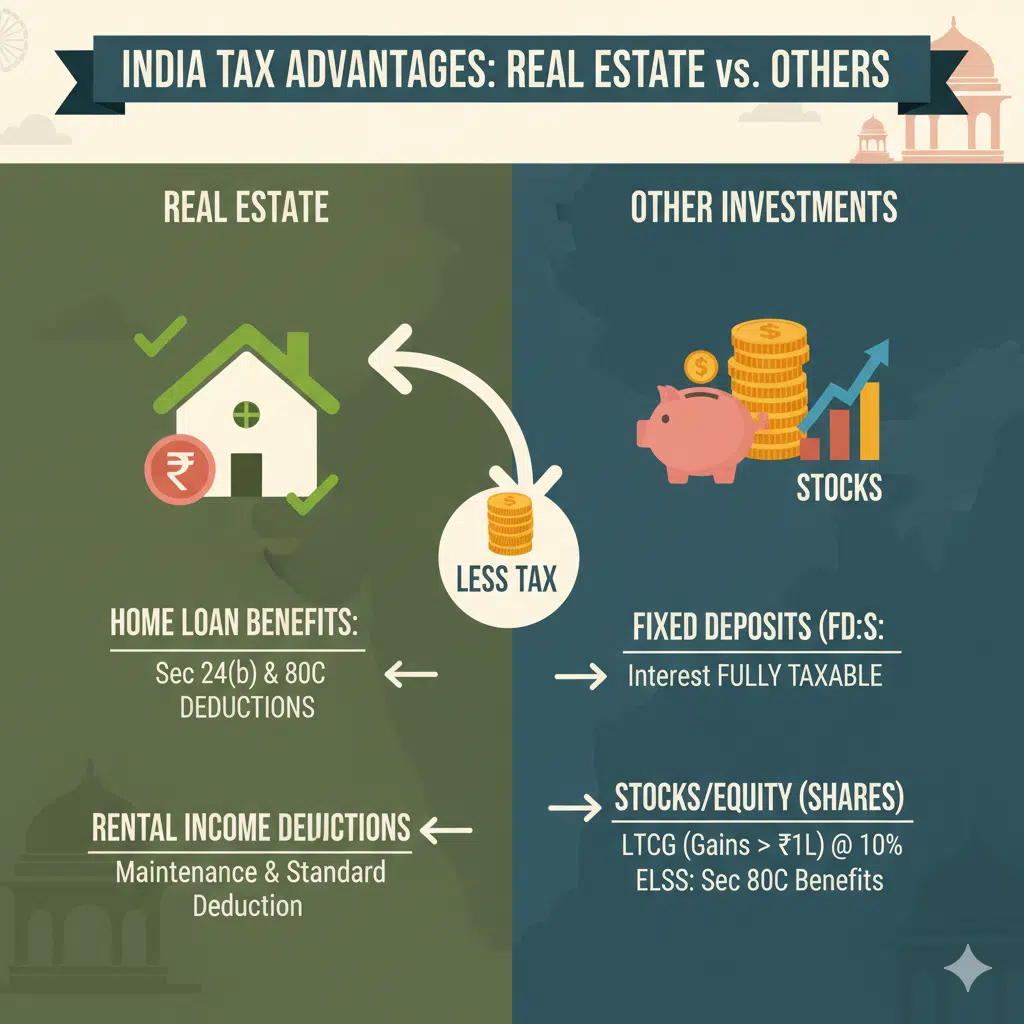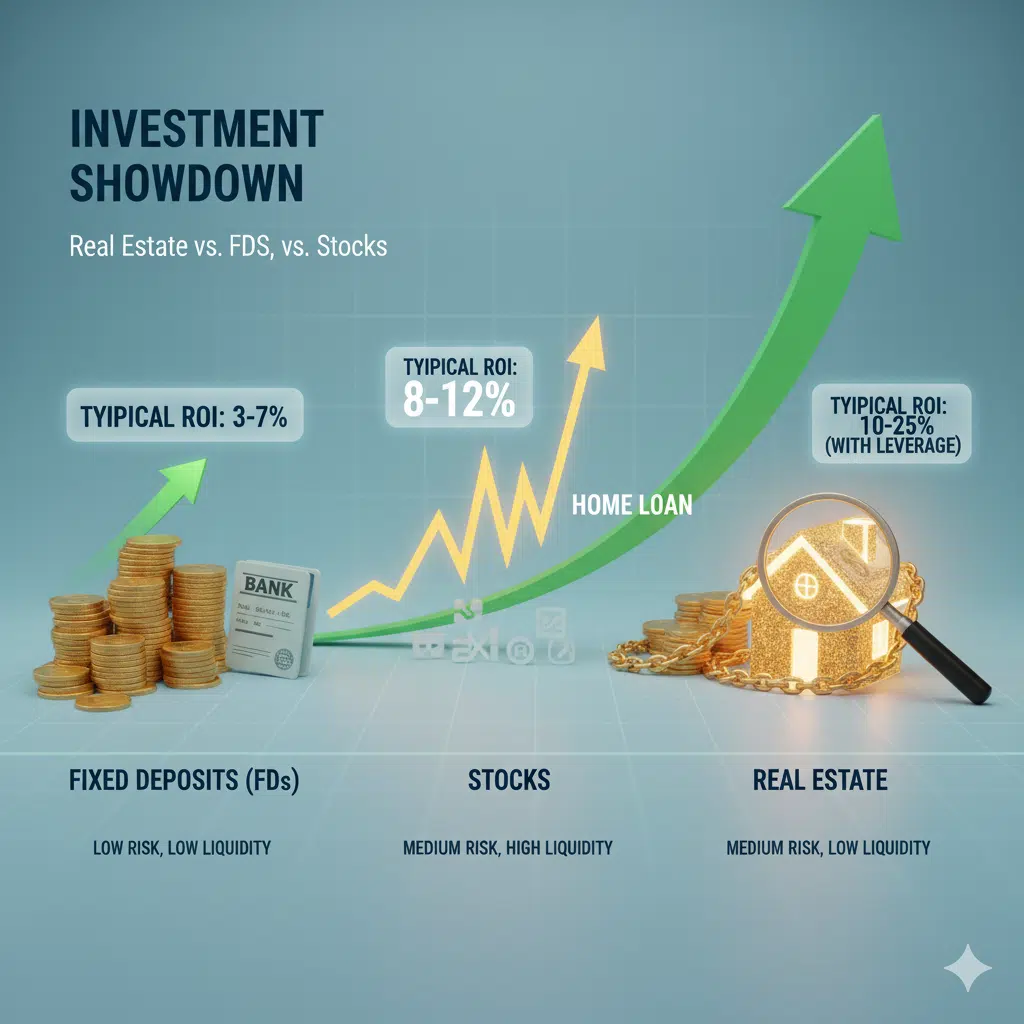Why Real Estate is Better Than FD or Stock Market?

When it comes to wealth creation in India, most investors consider three popular choices: Fixed Deposits (FDs), the Stock Market, and Real Estate. While FDs promise guaranteed returns and stocks offer high-risk-high-reward opportunities, real estate investment has consistently proven to be a more stable and rewarding option in the long run.
According to Housing.com, property remains one of the most preferred investment avenues in India because it combines financial growth with tangible ownership.
Tangible Asset & Long-Term Stability
Real Estate is a Physical Asset
Unlike FDs or stocks, real estate offers the security of a tangible asset. A house, apartment, or commercial property is something you can see, touch, use, or rent out.
- FDs are purely financial instruments with no physical presence.
- Stocks are intangible and highly volatile.
- Real estate provides stability and potential long-term appreciation.
📌 Example: Properties in metro cities like Gurugram or Bangalore have historically doubled or tripled in value over a decade.
👉 Explore our projects at Vinus Consulting Properties.

Passive Income Potential
Rental Income vs FD & Stock Dividends
One of the strongest reasons to invest in real estate is passive income through rentals:
- Rental properties provide consistent monthly cash flow.
- FDs offer predictable returns but often fall below inflation.
- Stock dividends are inconsistent and depend on company performance.
📌 Example: Residential properties in high-demand localities generate regular rental income, growing over time.
Check our property showcase at Vinus Consulting Gallery

Hedge Against Inflation
Real Estate vs Inflation
Inflation reduces the value of money, but real estate is an excellent hedge against inflation:
- Property values and rents increase with inflation.
- FD interest rates are fixed and may lose real value.
- Stocks can beat inflation but carry high risk.
Learn more from Ganga Realty
Unique Tax Benefits
Tax Savings Through Real Estate
Indian policies make real estate more tax-friendly:
- Home loan benefits: Deduction under Section 24(b) & Section 80C.
- Rental income deductions: Maintenance costs and standard deductions reduce tax liability.
- FDs: Interest fully taxable.
- Stocks: Long-term capital gains taxed at 10% for gains above ₹1 lakh; ELSS offers Section 80C benefits.

Leverage Opportunities
Amplify Returns with Home Loans
Real estate allows leverage through home loans:
- Acquire properties with a small down payment.
- Benefit from appreciation on the entire property value, not just your investment.
- Neither FDs nor stocks provide this leveraged ownership advantage.
📌 Example: Buy a ₹50 lakh property with ₹10 lakh down payment and earn returns on the entire value as property appreciates.

Long-Term Wealth Creation
Real Estate vs FDs and Stocks
- FDs: Short-term savings, low returns.
- Stocks: Potential high returns but high volatility.
- Real estate: Builds intergenerational wealth and offers capital appreciation + passive income.
Learn more about our advisory services at Vinus Consulting About Us.

Risks & Considerations
Even though real estate is superior in many ways, investors should consider:
- Higher initial investment than FDs or stocks.
- Lower liquidity compared to financial instruments.
- Property management responsibilities.
Professional guidance can help mitigate these risks.
Conclusion
When comparing FDs, stocks, and real estate, it’s clear that:
- FDs are safe but low-yield.
- Stocks are high-risk, high-return.
- Real estate offers stability, tax benefits, leverage, passive income, and long-term wealth creation.
For investors seeking financial growth with tangible security, real estate is the best choice.
Explore profitable property options with Vinus Consulting Properties
FAQs About Real Estate Investment
Proudly powered by vinusconsulting

Leave a Reply